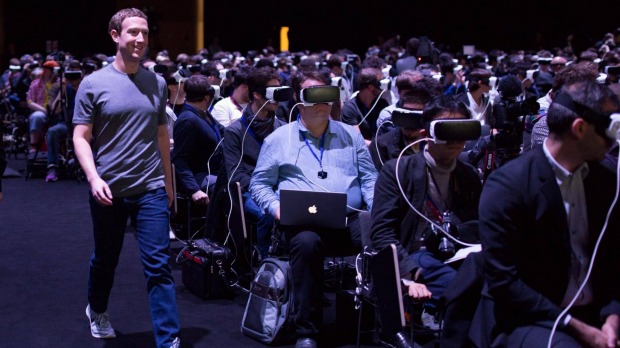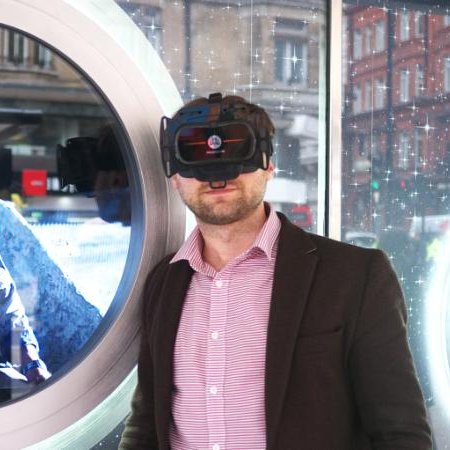From the rising virtual reality headsets to Google turning Cardboard into a virtual reality experience – as well as HTC Vive and Microsoft Hololens – there is no doubt that Virtual Reality (VR) is the latest ‘next generation’ thing that is quickly gaining momentum. The ever-changing gaming environment, coupled with the inclusion of innovative VR, has not only forced game developers to think beyond traditional gaming moves but also marked the scope for the evolution of game engines and VR gadgets. After all, the consumer is king and companies need to be at their best to meet global consumer demands.
Recently, we asked a few popular dignitaries of gaming industry the question: ‘How has VR affected gaming and consumer behavior on a global level?’. Here is what we got in response:
Contents
Who did we interview?
- Daniel Nye Griffiths
- Krist Duro
- Jonathan Tustain
Daniel Nye Griffiths Krist Duro Jonathan Tustain
Daniel Nye Griffiths – Contributing Editor, Wired UK, and Contributor, Forbes.com

In his own words, he is Associate Director, Albion Drive. Resting tech journalist.
What did Daniel say?
Virtual reality has been a technology seeking its moment for some time – however, to become a credible proposition, a whole stack of technologies had to become far smaller, cheaper and more power-efficient. So, to a considerable extent, the modern resurgence of VR has been built on the economic and technical imperatives of the smartphone economy – both in the relative affordability of dedicated VR hardware, and the possibilities provided by hybrid devices which use smartphones as their brains, displays, and sensors.
Gaming is a good place to test VR because core gamers are early adopters of technology and tend to have powerful devices – with the Oculus Rift and HTC Vive lined up for release in 2016, along with the PlayStation VR, we are going to see that kind of high-power, controller-driven equipment in the consumer market. However, with high initial prices, uptake is likely to be slow, to begin with – Facebook’s CFO Dave Wehner has said that Oculus VR’s corporate parent does not expect revenues from the Rift headset to be material in 2016. The inflection point will come, as it did with smartphones when production efficiency reduces cost, and increasing familiarity with the technology helps developers to make better games – just as Halo sold the Xbox.
However, low-cost VR experiences driven by smartphones have beaten these higher-quality experiences to the market, and are gaining momentum: Oculus also powers the software component of GearVR, a headset designed to hold a high-end Samsung phone. Samsung is giving away headsets with new phones, bringing hundreds of thousands of VR experiences into the market. And the universality, simplicity and low cost of phone cradles modeled on Google’s Cardboard design mean that they can be given away: the New York Times included an unfolded Cardboard holder with 1.3 million issues.
The lower the cost, the less sophisticated the interface is likely to be, of course. Most of the experiences available for Cardboard have limited interactivity, and are panoramic movies more than games. This still represents a radically different approach to filming, however, and also helps to prepare the market for new ways of seeing.
Krist Duro – Editor-In-Chief, Duuro Magazine

In his own words he is: Always striving for perfection in what I do and always looking for the next big thing in technology.
What did Krist say?
Technology is good, heck, tech is amazing! With the eminent explosion of VR in the upcoming months, it is an exciting time to be alive. Seeing a universe coming alive on the TV screen, no matter how big, is nothing short of amazing. But seeing it brought to life around you in full 360 degrees with the ability to walk in that virtual space and interact with every object is just spectacular. I don’t want to use this cliché, but with VR, the possibilities are truly endless. Sure the experiences available right now range from lacking to fantastic but remember that this is the dawn of VR. However, as spectacular and mind blowing as VR might be, in my opinion, it has a very dark side. Explaining this dark side would take way too long so instead I am just going to leave this photo…

Image Courtesy: Krist Duro
Jonathan Tustain – Co-Founder, Proteus VR

What did Jonathan say?
The magic of VR is its ability to transport the user to another time, place or even another life – no other digital medium can immerse users in other realities as efficiently. It’s the transportive nature of VR that allows for, not only the replication of the real world but the creation of entirely new realities – it’s compelling and has endless uses and benefits. You can design a building and stand in it before it even exists, you can be transported to any of the Seven Wonders of the World, doctors or engineers can train you, you can witness the horrors of a war zone, or you can simply watch a personal performance from one of your favorite bands. The scope of VR is unparalleled regarding the type of experience it can deliver to the audience, and as it gains mainstream acceptance, it has the power to change the way we consume media and experience life fundamentally.
What do we think?
VR a.k.a. Virtual Reality has certainly changed the definition of gaming, as well as what consumers’ thoughts about gaming consoles used to be. The gaming that before belonged only to a console has turned into more realistic virtual reality games – with every move, position, and character appearing as if they are real objects and your head and body interacting with objects like a real movement experience.
VR has introduced a new avatar of gaming, in which users can enter an actual frame of mind where they can experience a more realistic and deeper gaming experience. The games are getting better as developers are leaving no stone unturned to find new ways of keeping gamers entertained. With graphics more realistic than ever before, and older gaming consoles becoming obsolete, there is no doubt that VR is changing gaming for the better as developers are spending more time and money to develop more realistic games to meet consumer demands.
At the same time, developers want to ensure that the price is as low as possible, to ultimately provide users with a more competitive market for the selection of better products. Developers are asking themselves why gamers would buy a less realistic game, which runs on older technology when he/she could be experiencing games in the ‘real’ VR world instead of the ‘classic’ on-screen world. The rapid growth of virtual gaming and increasing scope for an improved niche market demonstrates the influence of VR on consumer behavior in the gaming industry.
Links to other interview :
- How has the Future of Tech Affected Your Industry on Global Scale ?
- How has Crowdfunding Affected the Tech Industry Globally ?
- How has Consumer Behaviour Affected Advances in Technology on Global Scale ?
- How has the Rise of Social Media and Technology Affected Modern Day Terrorism ?
- How has the Rise of Social Media and Technology Affected Modern Day Terrorism ?
- How has Apple Influenced Global Consumer Behaviour ?
- How has Technology Affected Media Globally ?
- How has Digital Media Affected Publishing Globally ?
- How has Mobile Technology Changed the World ?
- How has Tech Changed Celebrity Culture ?

















